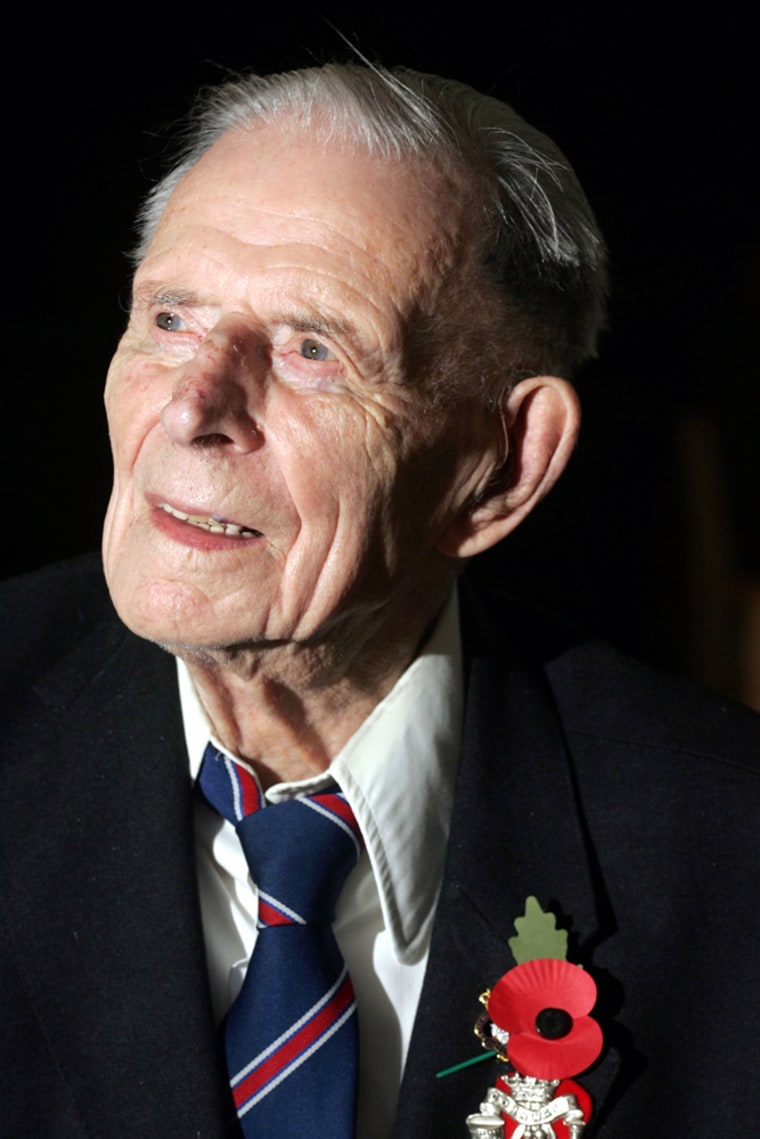Harry Patch, the last British army veteran of World War I, has died at 111, the nursing home where he lived said Saturday.
The Fletcher House care home in Wells, southwest England, said Patch died early Saturday.
"He just quietly slipped away at 9 a.m. this morning," said care home manager Andrew Larpent. "It was how he would have wanted it, without having to be moved to hospitals but here, peacefully with his friends and carers."
Prime Minister Gordon Brown said the whole country would mourn "the passing of a great man."
"The noblest of all the generations has left us, but they will never be forgotten. We say today with still greater force, we will remember them," Brown said.
Prince Charles said "nothing could give me greater pride" than paying tribute to Patch.
Patch had been the last surviving soldier from the British army to have served in the 1914-18 war. The only other surviving U.K.-based British veteran of the war, former airman Henry Allingham, died a week ago at age 113.
The Ministry of Defense called Patch "the last British survivor of the First World War," although 108-year-old Claude Choules of Australia is believed to have served in the Royal Navy during the conflict.
Into the trenches
Born in southwest England in 1898, Patch was called up for military service in 1916 when he was working as a teenage apprentice plumber. After training he was sent to the trenches as a machine-gunner in the Duke of Cornwall's Light Infantry.
A few weeks later, in one of the bloodiest battles of the war, at Passchendaele near the Belgian town of Ypres, he was badly wounded and three of his best friends were killed by a shell explosion.
Patch's death Saturday severs Britain's living links with "the war to end all wars," which killed about 20 million people.
In recent years he and his dwindling band of fellow survivors became poignant symbols of the conflict.
Last year he, Allingham and British naval veteran Bill Stone attended remembrance ceremonies in London to mark the 90th anniversary of the war's end at the 11th hour of the 11th day of the 11th month in 1918. The three frail men in wheelchairs laid wreaths of red poppies at the base of the stone memorial.
Stone died in January.
'Today is not for me'
At a remembrance ceremony in 2007, Patch said he felt "humbled that I should be representing an entire generation."
"Today is not for me. It is for the countless millions who did not come home with their lives intact. They are the heroes," he said. "It is also important we remember those who lost their lives on both sides."
Patch said he did not speak about the war for 80 years. But he came to believe the casualties were not justified.
"I met someone from the German side and we both shared the same opinion: we fought, we finished and we were friends," he said in 2007.
"It wasn't worth it."
